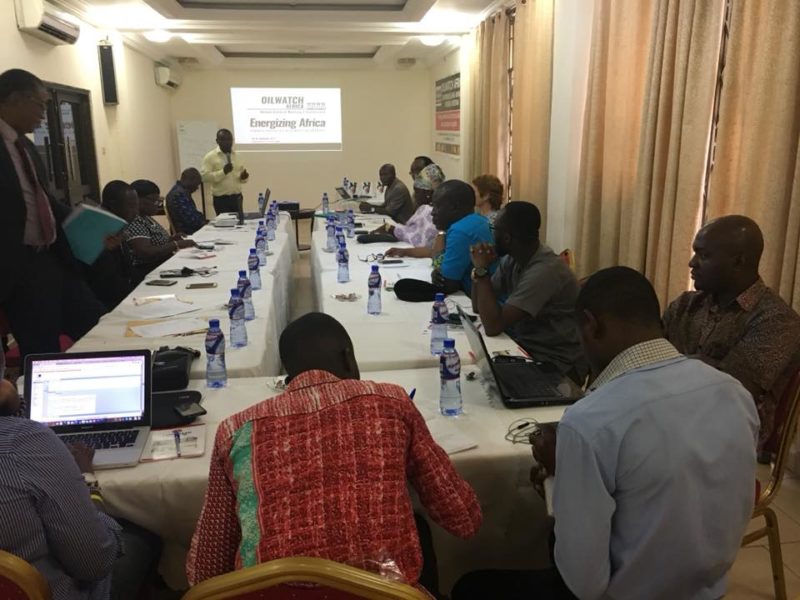A gathering comprising Oilwatch Africa network members, community representatives from oil regions, academia, non-governmental organisations (NGOs), community-based organisations (CBOs) and the media who met in Accra, Ghana, between September 24 and 27, 2017, has called on governments to divest from fossil fuel and invest in renewable energy.

In a communique issued at the close of the event and titled: “Fossil Fuels and Alternative Energy for Africa: The Accra Declaration”, the participants, who considered the impacts of fossil fuels on the continent, proposed alternatives for decentralised energy systems that they consider environmentally friendly and socially just.
While demanding the peoples’ ownership and control of energy systems, they want environmental and social externalities associated with fossil energy extraction be included in the true price of oil.
Oilwatch Africa members and other stakeholders at the meeting also considered the implications of fossil fuels exploitation on primary economies including agriculture, fisheries and livelihoods, even as they called for a stoppage of fossil exploration, funding and expansion activities in Africa.
The gathering likewise demanded the prioritisation of primary economies, such as of fisheries, over the enclave economies of the extractive sector – as a means of protecting the livelihoods and social security of the majority of our citizens.
Oilwatch Africa affirmed that “leaving fossils fuels in the ground” and replacing with “renewable energy” is possible and an inescapable path to protecting nations, tackling global warming and securing a future for new generations.
Leaving fossil fuels in the ground will be a powerful means of mitigating the impact of climate change, the group noted, adding that the call is in consonance with science.
The conference analysed:
- The political and economic interests of the governments and multinational oil companies,
- Political corruption and abuse of political power,
- The rise of human and environmental rights abuses visited on our communities and peoples,
- Issues of land grabbing, displacements and the marginalisation of communities,
- Data paucity on renewable energy resources,
- Abuse of the tools for socio-economic/environmental assessments in interrogating proposed projects,
- Governments investment choices in energy systems are driven by industry and international financial institutions and do not reflect peoples’ energy needs.
Oilwatch Africa officials at the meeting comprised representatives from Benin, Cameroon, Chad, Cote d’Ivoire, Ghana, Kenya, Mali, Mozambique, Nigeria, South Africa, South Sudan, Swaziland, Tanzania, Togo and Uganda.
